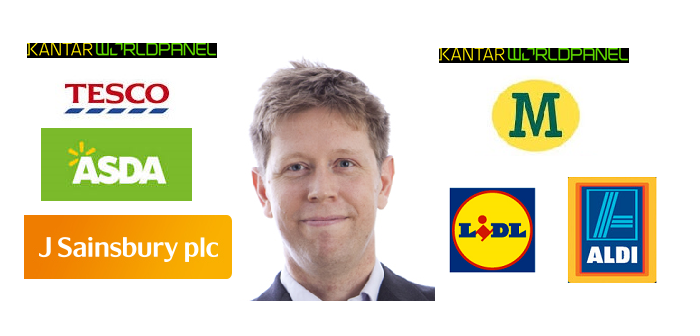The latest grocery share figures show the market growing at 0.3%, due to an upturn in the weather, which spurred consumers into increasing their spending, according market analysts, Kantar Worldpanel.
While this is the fastest acceleration for the overall market since March 2016, there is still no evidence of any Brexit-fuelled inflation causing food prices to rise.
“In fact, grocery price inflation remains negative, with a representative basket of goods 1.3% cheaper than it was last year,” said Kantar’s head of retail and consumer insight, Fraser McKevitt (pictured above), commenting on market trends for the 12 weeks ending August 14.
Once again, Lidl shows up as the fastest growing supermarket, with sales up 12.2%, increasing its share by 0.4 percentage points on last year to secure 4.5% of the market.
At the same time, sales at Aldi rose by 10.4%, up by 0.6 percentage points to 6.2%, with both discounters benefitting from a rising premium for own label sales.
Although Tesco’s sales fell by 0.4% during the 12 week, Mr McKevitt pointed out that this is the chain’s slowest rate of decline in six months.
“Current trends suggest the decline, stretching back to March 2015, could soon come to an end,” he said, adding that Tesco’s recent product launches have been making a positive impact on its performance, with its “farm brands” finding their way into over a quarter of the chain’s shopping baskets during the report period.
Elsewhere, sales declined by 0.6% at Sainsbury’s; by 1.8% at Morrisons and by 5.5% at Asda. This was in contrast to positive figures from the Co-op, where sales rose by 2.8% compared to last year, and at Waitrose where they rose by 1.4%.




